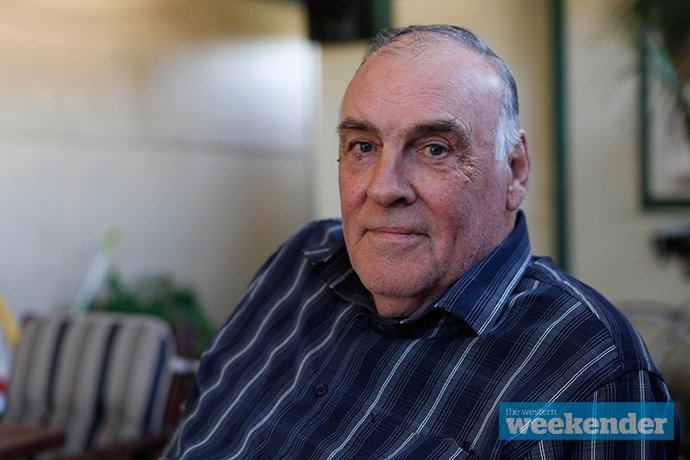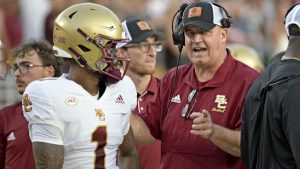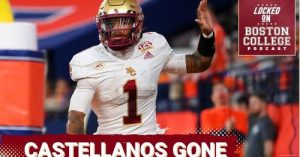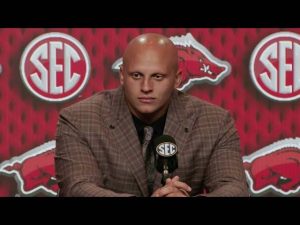
Panthers legend Ashurst the best footballer no-one knew about
He was, perhaps the finest footballer whom few saw play but those who did will never forget.
Bill Ashurst, the Great Britain international who played briefly for Penrith in the mid-1970s before fleeing back to Wigan in the middle of the night, died from a heart attack last Wednesday, aged 74

Ashurst hated training, avoided tackling, played slightly more games than he missed in his brief career with Penrith, deserted the club, yet was selected in the Panthers’ best team of their first 40 years.
(A second-rower, he relegated local junior and Kangaroo, Mark Geyer, to the bench).
So what made him so great? His attacking talent was almost otherworldly.
When he was in the mood, he kicked the ball to make it bounce like a trained poodle. He usually found a way through an impenetrable wall of defenders. Every long pass he threw found the fingertips of the intended receiver.
He dared to kick on early tackles at a time the game was only a few years away from the unlimited tackle rule. Coaches were still telling forwards, “if you kick the ball, I’ll cut your legs off.” Yet Ashurst’s kicks invariably found the sideline or himself.
A centre originally, he had surprising swiftness. He was also the first player to kick a goal at Penrith Park using the round-the-corner style.
He was so confident of his own sublime skills that he sold off Man of the Match prizes before a game. In 1974, the year Penrith reached the final of the midweek Amco Cup, Bill sold off the colour TV awarded the best player, before kick-off on at least two occasions.
To resurrect an old cliché, he treated defence as if it was the wire barrier around the field. It’s not as if he couldn’t tackle. A Penrith coach once criticised him for making five tackles in a match and asked him to do more.
The following week against Norths. Bill rarely touched the ball, made 40 tackles and the Panthers lost 40-0. Afterwards, the coach said, “Just play your natural game.”
Penrith teammates, such as Dennis Tutty, would plead with him not to miss a game, volunteering “I’ll do your tackling for you.”
Another teammate, Tim Sheens, now head of football at Wests Tigers, recalls Bill being “the first bloke to miss 17 successive Tuesday night fitness sessions.” But he was first on the field for Thursday night ballwork.
In today’s 17-man, eight interchange game, he would be the classic impact player. Asked if he would still smoke at half-time, he quipped that he would go through twice as many lungbusters, given the time he would spend on the interchange bench. Imagine what he would have done with 40:20s!
When immigration officials asked him if had a criminal record, he replied, “Is it still compulsory?”
In an era where back-rowers earn less than the spine, Ashurst would be a million-dollar player.
Penrith ex-players thought so highly of him, they chipped in to fund regular trips to Australia where he joined The Great Walk, a local charity. (Unlike Royce Simmons who actually walked the 300km last month, Bill was a member of the road crew).
Given that his hosts accommodated, fed and transported him as a family member around Sydney and NSW, some would say he was the classic “sponging Pom.” But no-one objected because we instinctively knew that if he had money, he would spend it.
A pensioner, he lived with his wife, Sheila, in the English equivalent of housing commission accommodation. Theirs was a born-again marriage after Bill found God. They had six children and he could recite the dates of birth of his myriad grandchildren and great-grandchildren.

A great wit, when immigration officials at Sydney airport asked him if had a criminal record, he replied, “Is it still compulsory?”
On his visit last month, Bill made it a condition that he catch up with me after all these years. I coached him in 1974 when I was a member of a coaching panel.
I’m eternally grateful for our two days together at the foot of the Blue Mountains, reminiscing. Some detected a frailty in his health and when one of the ex-Panthers drove him to the airport, he said: “This will be the last time I see you.”
The day before he died, he began a rambling conversation with God. If God doesn’t pay for his funeral, his mates will.






